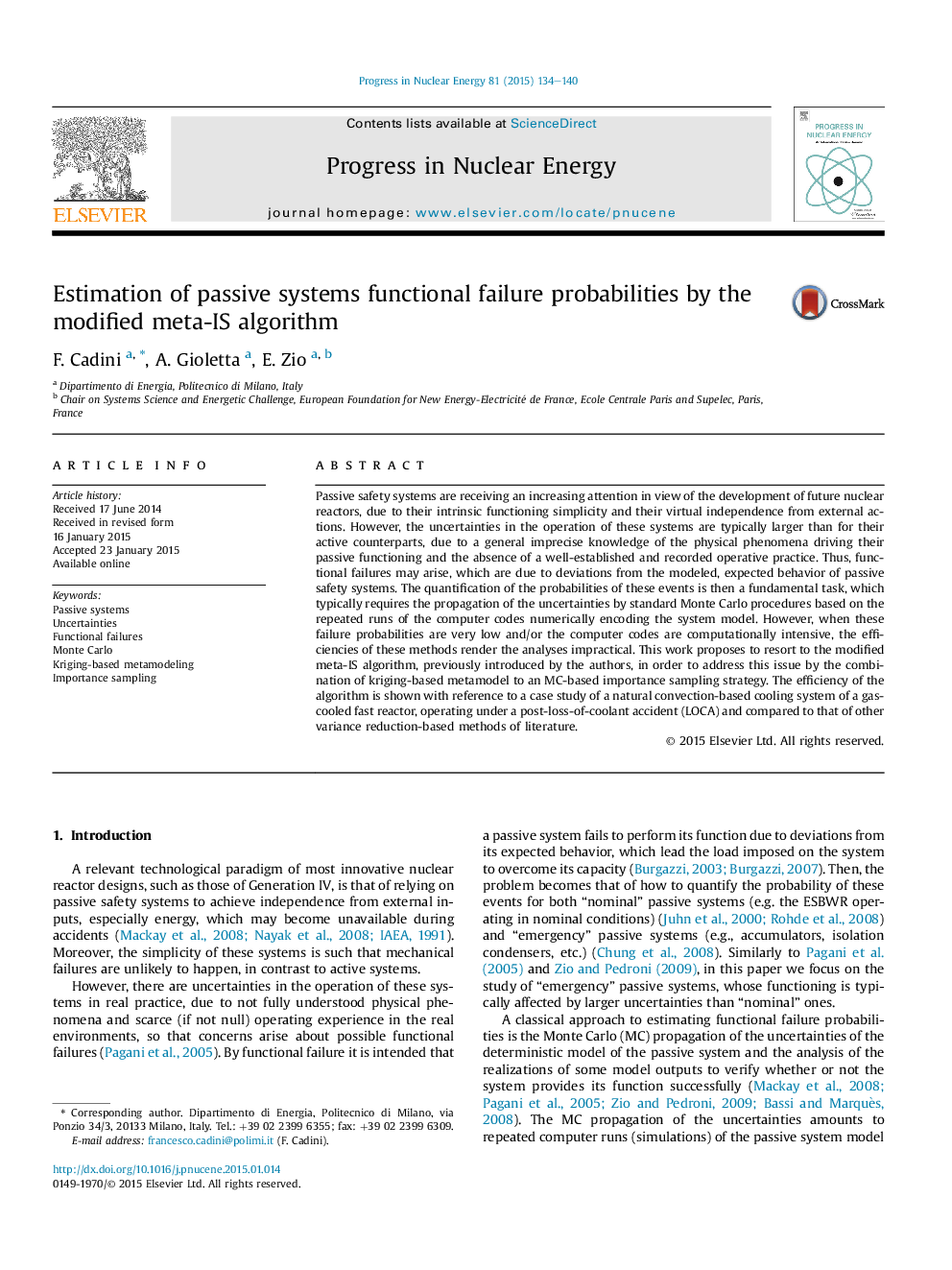| Article ID | Journal | Published Year | Pages | File Type |
|---|---|---|---|---|
| 8085421 | Progress in Nuclear Energy | 2015 | 7 Pages |
Abstract
Passive safety systems are receiving an increasing attention in view of the development of future nuclear reactors, due to their intrinsic functioning simplicity and their virtual independence from external actions. However, the uncertainties in the operation of these systems are typically larger than for their active counterparts, due to a general imprecise knowledge of the physical phenomena driving their passive functioning and the absence of a well-established and recorded operative practice. Thus, functional failures may arise, which are due to deviations from the modeled, expected behavior of passive safety systems. The quantification of the probabilities of these events is then a fundamental task, which typically requires the propagation of the uncertainties by standard Monte Carlo procedures based on the repeated runs of the computer codes numerically encoding the system model. However, when these failure probabilities are very low and/or the computer codes are computationally intensive, the efficiencies of these methods render the analyses impractical. This work proposes to resort to the modified meta-IS algorithm, previously introduced by the authors, in order to address this issue by the combination of kriging-based metamodel to an MC-based importance sampling strategy. The efficiency of the algorithm is shown with reference to a case study of a natural convection-based cooling system of a gas-cooled fast reactor, operating under a post-loss-of-coolant accident (LOCA) and compared to that of other variance reduction-based methods of literature.
Related Topics
Physical Sciences and Engineering
Energy
Energy Engineering and Power Technology
Authors
F. Cadini, A. Gioletta, E. Zio,
